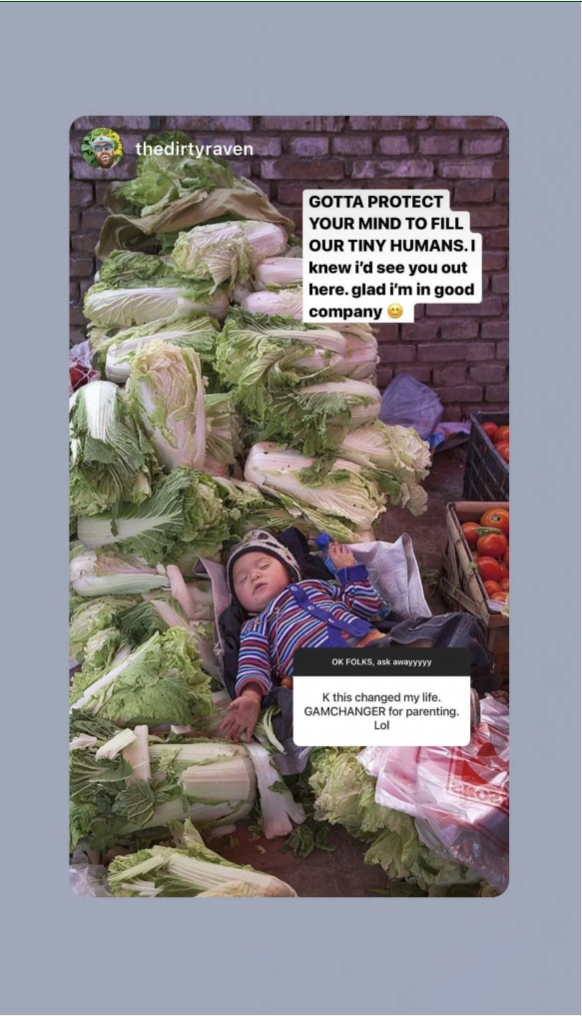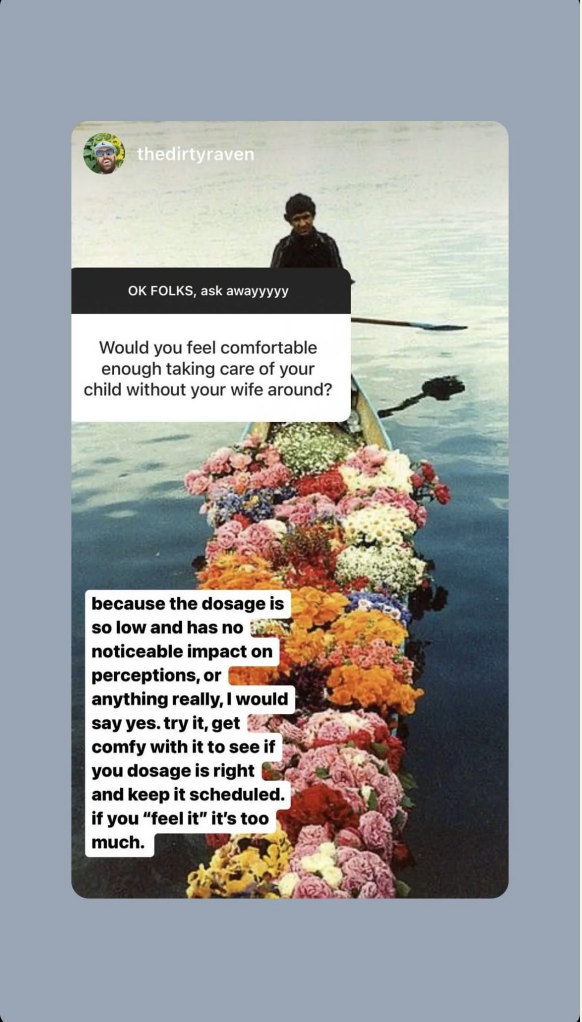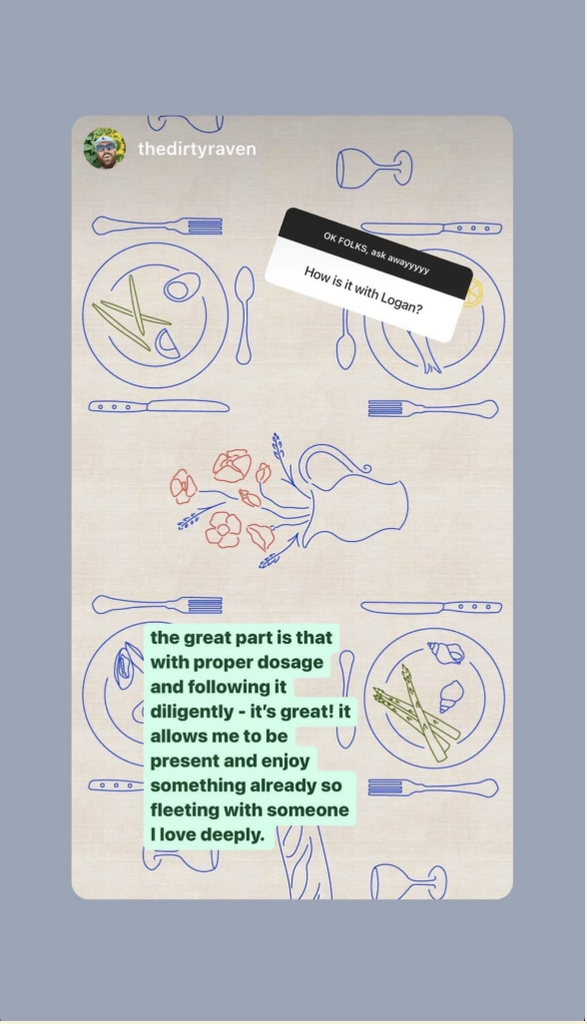Feel Lifted
Looking to microdose and macrodose to improve your mood? Get started with this bundle. .
Free shipping on orders over $200
Free shipping on orders over $200
Free shipping on orders over $200
Free shipping on orders over $200
Free shipping on orders over $200
Free shipping on orders over $200
Free shipping on orders over $200
Free shipping on orders over $200
Free shipping on orders over $200
Free shipping on orders over $200
Microdosing & Parenting

“Is this something that I can do while taking care of my kids?”
This is a common question we encounter within our community (which we totally understand!). A lot of folks reach out to us noting their past experience with magic mushrooms, which resulted in a “trip”, also known as a macrodose. They wonder if microdosing will feel similar, in which case, not a suitable experience to combine with parenting.
Let us start with some reassurance:
With a macrodose, you are taking a deeper journey that can lead to hallucinations and out of body experiences. This typically involves more than one gram of magic mushrooms.
With microdosing, the amount of magic mushrooms you’re consuming is notably much, much smaller. Though noticeable, the feelings are incredibly subtle and should not lead to a significantly altered state. Many describe the feeling of a microdose as: “I felt just like me, but on a really good day.” It adds a slight glow or warmth, helps you better feel your feelings, and often feel more connected with the world around you.
With this being said, microdosing should not be done in haste. Magic mushrooms should always be treated with reference and taken intentionally. We always recommend integrating other mindfulness practices to help you stay grounded – more on this a little further along.
Let’s first define “microdosing”:
Microdosing is the act of regularly consuming low, sub-hallucinogenic doses of a psychedelic. Long term microdosing has been reported to improve mood, increase of energy, boost creativity, improve troubling or emotional menstrual periods, lead to healthier choices (food choices, exercise, yoga), improve focus, reduce anxiety and stress (to only scratch the surface).
The term ‘microdosing’ can be broken down into these three components:
As mentioned, it can create a very subtle elevation to your state, your focus may feel sharper, and mind more clear. You may feel your stress response is softened, and there is an element of ease as you navigate your day. Microdosing has been shown to have many benefits across mental and physical well-being – including reducing anxiety and depression, symptoms of PTSD, chronic pain, alleviating addiction and even as a treatment for eating disorders. You can dive into how to begin your microdosing journey with our Microdosing 101 guide.
Psilocybin is not addictive and will not result in any withdrawal symptoms, so you can follow a microdosing protocol for as long as it calls. For some, this might be three to six months, for others, one or two. Your specific duration will align with your specific goals. For us, we often feel an intuitive desire to take a pause for a few weeks, which can be beneficial to take time to observe how the mushrooms are integrating and reset your tolerance.
We recommend experiencing your first dose on a day that is relatively commitment-free – say a Sunday morning – simply to give yourself a safe environment to notice how it lands.
We’d like to note that finding your “ideal microdose” is very personal. There is no “one size fits all” when it comes to microdosing, and your dose can change slightly based on enviornmental impacts such as how much you’ve eaten, how active you are, how stressful your life is at that moment, or how much sleep you’ve gotten.
We recommend starting at 125 mg and see how that feels. You may feel nothing at all, in which case you are welcome to stack your dose (for example, by taking two 125 mg capsules for a total microdose of 250 mg). Alternatively, if you felt 125 mg was a little much, the next time you dose you can try taking it on a full stomach.
You can take your microdose at any point in the day, though most folks like to take it in the morning to set the tone for the day, or before bed to get a great sleep and wake up feeling inspired. You can experiment and see what works best for you.
It is also worth noting the timing of a microdose and what to expect:
Generally, you will begin to gently “feel” your microdose one hour after taking it and the immediate effects should last four to six hours. It’s common to experience an ‘after glow’ the next day as well, and many people often enjoy this feeling as much, if not more, than their dose day.
As for a schedule, microdosing is not something that you do every single day. In fact, if you do dose everyday, you’ll build a tolerance to the medicine, and magic mushrooms are not something you can simply take more of because, well, then you’ll be having a different type of experience!
We recommend starting off by picking two days every week to microdose (for example, every Saturday and Tuesday morning). Depending on your experience, you can increase the frequency. You have the flexibility to choose whatever schedule aligns with your personal goals and lifestyle. The only rule we recommend is to take at least two days off per week to avoid building a tolerance to the medicine. Two popular protocols include:



To make the most of your dose days, we suggest pairing your dose with an intention setting practice – journaling, meditation, a mindful walk – and to explore complementary healing modalities like breathwork, movement, or therapy as you develop a relationship and routine with this sacred medicine.
From a physiological perspective, if you are dosing correctly, and it is sub-hallucinogenic, you should not feel ‘high’ in any way. You should not experience any impairment and should be able to go about your regular daily activities. That being said, if it is your first time (or first couple times), we do not recommend driving or engaging in important responsibilities. We suggest trying it out on a light day where you can relax into the experience. It may take some experimentation to find your ideal dosage and we encourage everyone to explore what that is for themselves. When you’ve built a comfortable relationship it, one of the things we love most about magic mushrooms is that they can gently provide you with what you need on a given day. This might mean more patience, concentration, calm, energy, etc., which can be a supportive tool as a parent. It could have potential to be supportive for parents who are experiencing depression, and it is proving to be more and more popular among mother’s according to this article to help ease the stress of parenting.
For those who are pregnant or breastfeeding – the research is still very new in this area and the decision to microdose while pregnant or breastfeeding is very personal. Some are comfortable with it, some are not. This page offers a bit of insight into this. Additionally, there is one animal reproduction study that has been completed on magic mushrooms and reproduction. The results showed no increased risk of birth defects.
As for breastfeeding, there are no official studies although most anecdotal evidence suggests little to no risk. If you decide to breastfeed and microdose, ensure you are sourcing psilocybin from a high quality and reputable source. You can learn more about our ethics here.
You can always connect with us on Instagram or via e-mail at connect@heysero.co with any specific questions you may have around your microdosing journey. We’re here for you!